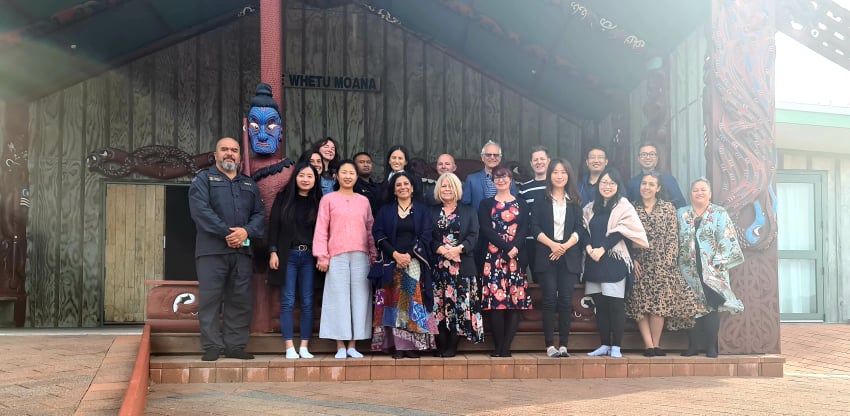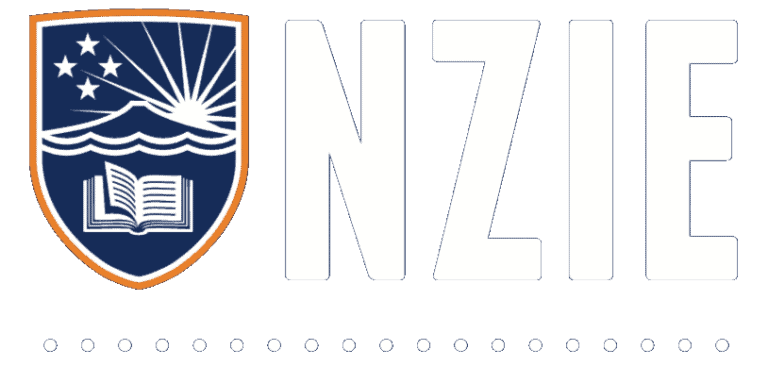This month NZIE management team were introduced to a unique professional development day. This experience truly was one of a kind. Due to being held on a marae, in a fully carved meeting house.
Additionally we were all new to a Marae Wananga (workshop). However the manaakitanga (hospitality) that we received from Terehia and Ngahiwi ensured that all of us were very welcomed and looked after.
During the lead up to the day employees practiced learning our NZIE pepeha. According to pepeha.nz the “Pepeha is a way of introducing yourself in Māori. It tells people who you are by sharing your connections with the people and places that are important to you.” NZIE Kai awhina (cultural support) person Terehia developed a pepeha specific to NZIE.
NZIE Pepeha:
Tēnā koutou, tēnā koutou, tēnā koutou katoa
Ko Rangitoto te maunga
Ko Pupuke te moana
He kaimahi ahau ki NZIE
No (insert place you’re from) ahau
Ko (insert full name) ahau
Translation:
Hello everyone
Rangitoto is the mountain
Pupuke is the Lake
I am a worker at NZIE
I am from [place]
I am [name]
_______________
Maunga = Mountain
Moana = Ocean/lake
Kaimahi = Worker
Ki = Location
Ahau = I am
Pictured: Shirley Wood stating her pepeha
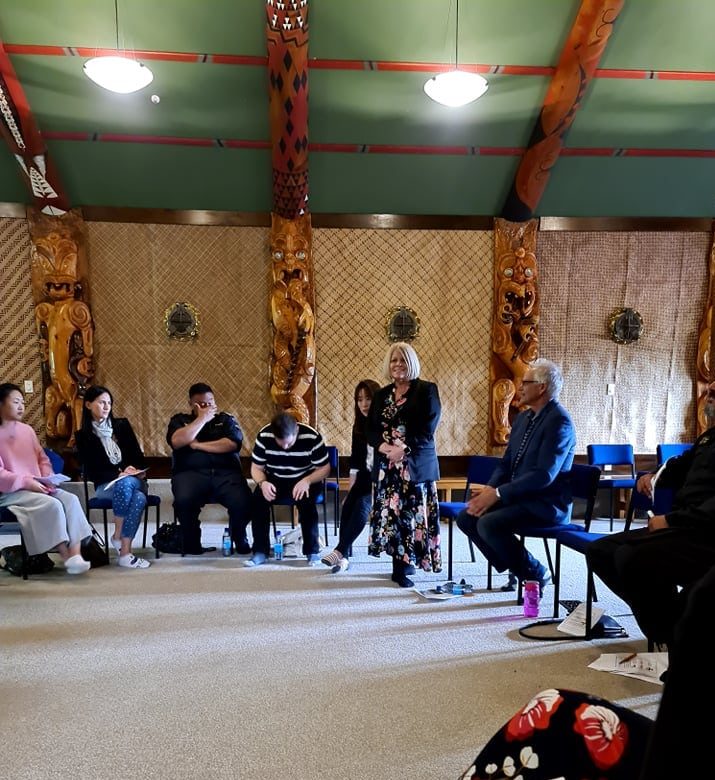
This was both a nerve racking and empowering experience for NZIE staff. Even more so for our co-workers who have English as their second language. Nonetheless everyone did amazing when delivering their pepeha and our hosts were ecstatic and proud!
In addition to the custom pepeha, Ngahiwi and Terehia also provided a Māori proverb that was specific to NZIE. This encapsulated our company mission, brand message and driving force behind why we do what we do. In te reo this is what they call a whakataukī.
Definition of a Whakataukī (Māori proverb):
According to Woodward Māori a Whakataukī is a poetic form of the Māori language. Often merging historical events, or holistic perspectives with underlying messages which are extremely influential in Māori society. For example see NZIE’s one below.
NZIE Whakataukī:
“Poipoia te kakano, kia puawai”
This translates to:
“Nurture the seed and it will blossom”
Traditional Māori Welcoming ceremony Pōwhiri
Upon arrival we were welcomed with a touching pōwhiri ceremony. This was a very beautiful, emotional and spiritual moment. Even for those who don’t normally identify themselves as spiritual. According to 100% Pure New Zealand, “the pōwhiri signifies two groups coming together, negotiating the terms of their engagement. Then finishing with guests joining their hosts as one. It is a spiritual journey where gods, heaven and earth are acknowledged, ancestors remembered and kinship ties reinforced.”
FUN FACT:
Did you know there are different dialects for different iwi (tribes). For example in eastern dialects it is called a pōhiri. Pronounced [ˈpɔr firi]. Due to the pōwhiri being a formal proceeding, manuhiri (visitors) are requested not to take photographs or videos.
Te Whare Tapa Whā
As a part of one of our professional development activities we learnt about ‘Te Whare Tapa Whā’. This is a Māori health model developed by Mason Durie. In two teams we were given case studies based on real life difficulties that some students face. From there we had to brainstorm ways to improve the four sides of their hauora (well-being). Pictured below is a diagram of Te Whare Tapa Whā:
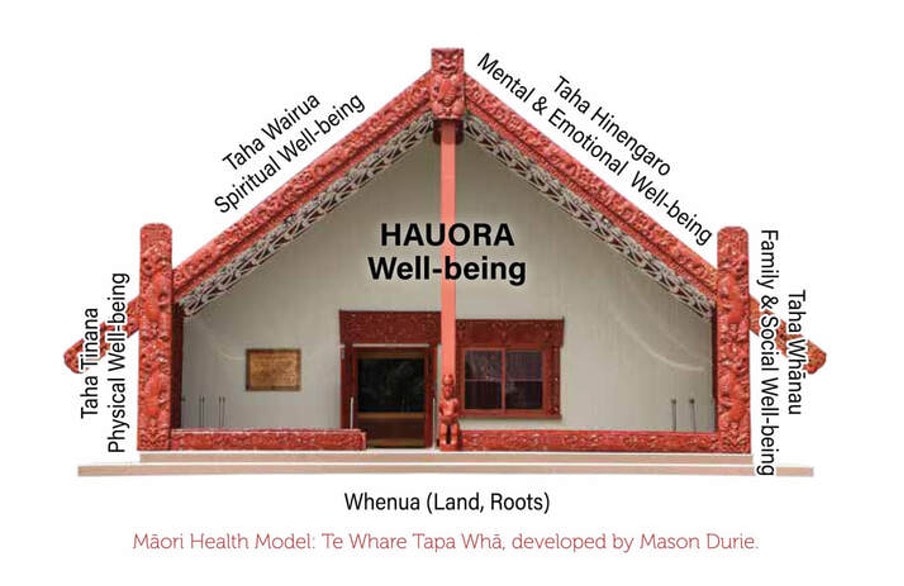
The four sides consist of:
- Physical health
- Spiritual well-being
- Mental & emotional
- Family & social
Collaboratively we came up with a mixture of solutions that incorporate these four aspects. Furthermore we look forward to implementing and using these new ideas with future students. Pictured below team building activity photos for the Te Whare Tapa Whā session.
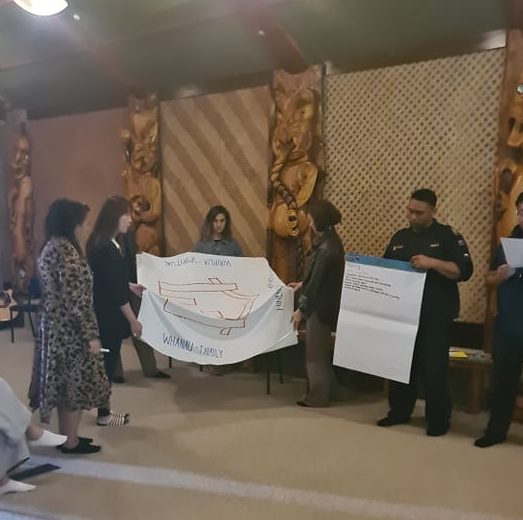
Highlights of the day:
- Ana from the marketing team got a call notifying her that she finally has residency! There were many happy tears of joy.
- Team members opening up about feeling a spiritual connection to their ancestors and late relatives whilst present in the Marae
- Immersing ourselves in Aotearoa’s Māori roots and learning te reo.
- Learning about Māori weapons, instruments and war traditions. See picture below of Ngahiwi and managing director Rob:
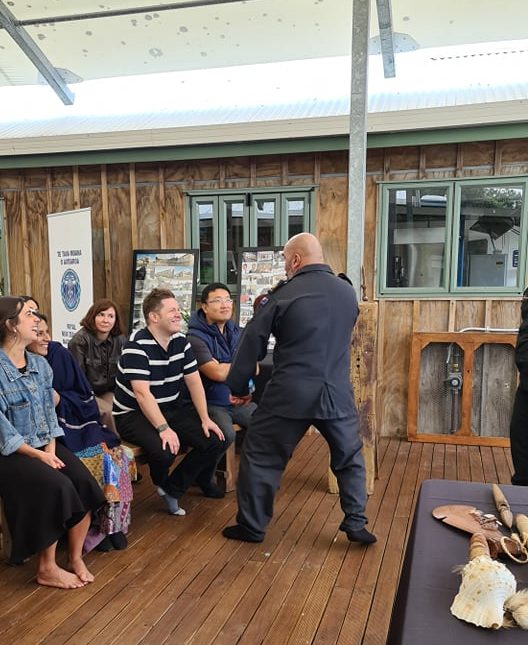
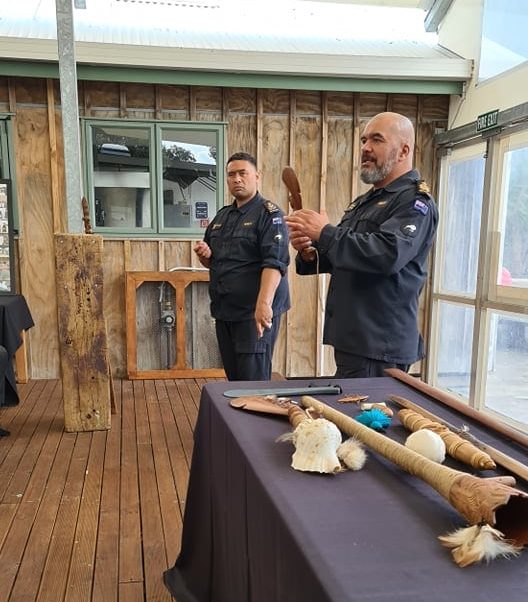
Nga mihi nui Terehia and Ngahiwi. The NZIE whānau (family) loved their time at Te Taua Moana Marae and look forward to our next professional development day with you all again.

